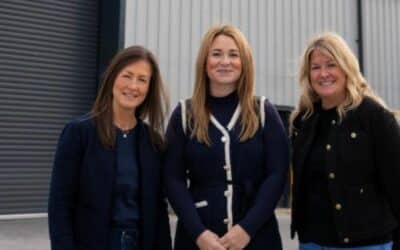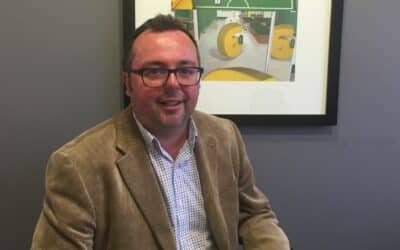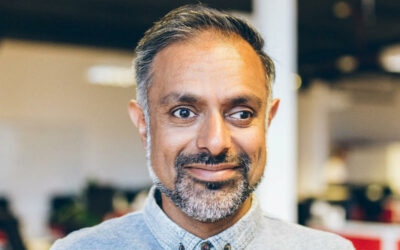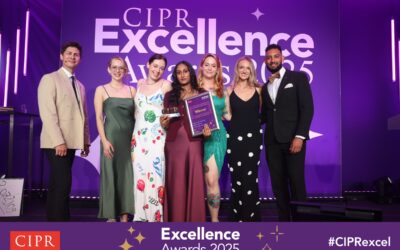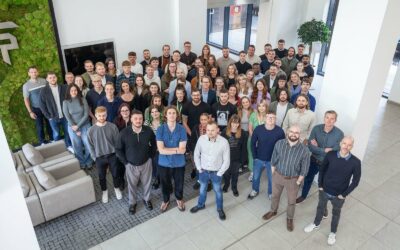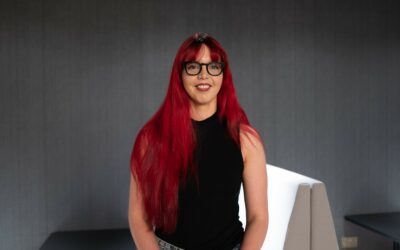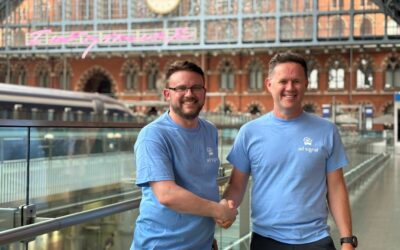Laura Walker is a director at Future Factory, a lead generation consultancy for digital and creative businesses.
As the first hire for Future Factory North in September 2019, she has progressed through every level of the business from senior account manager all the way to her current role as director.
Now, she leads the Northern operations for Future Factory across its Manchester and Glasgow offices.
From unconventional career paths to lucky breaks, she shares all the lessons she’s learnt so far…
Which single daily habit or practice could you not do without?
My non-negotiable daily habit is maintaining healthy boundaries – no work discussions before 8:30am. Having a clear separation from my job and only engaging with it during working hours really allows me to properly rest and feel energised when it’s time to focus. This structure helps me manage the demands of overseeing multiple teams and ensures I can give my best to both our Manchester and Glasgow operations.
What’s been your luckiest break?
My luckiest break was joining Future Factory. My interview took place in a Manchester coffee shop doorway when we had no official office and just a handful of clients. Five years later, I’ve helped grow the business from 3 to over 20 people, establishing our own culture and ways of working that align with agencies beyond the M25. Being part of this growth story, from having no Northern presence to now operating successful offices in both Manchester and Glasgow, has been incredible.
What’s your best failure?
My best failure was quitting my PGCE without a backup plan. While I had my heart set on teaching, I realised the profession was changing. This led me to OFFICE, where I discovered my love for incentive-based sales – earning £1 for every online order and selling UGG boots to fund New Year’s Eve plans. This experience, combined with later roles in client services, gave me the resilience and skills needed for my current position.
What is the best investment you’ve ever made, either financial or time?
The best time investment I’ve made is in reading. I’m in my “Kindle era” and have read almost 30 books this year – I’ve even got a remote-control page turner and bedside table clamp! From self-development books on ‘how to fail’ or ‘get your sh*t together’ to industry insights, this continuous learning has shaped my overall approach to leadership and problem-solving.
Which podcast or book would you recommend others to read/listen to, and why?
I’d recommend “The Defining Decade” by Meg J. As someone who’s navigated an unconventional career path – from dance graduate to retail to construction to lead generation – this book resonates with me and champions making bold choices and embracing uncertainty in your twenties and beyond.
What one piece of advice would you give your 21-year-old self?
To my 21-year-old self I would say: the deep end isn’t such a scary place. I’ve learned that Future Factory is like a playground for anyone wanting to break into the creative world. Take advantage of every opportunity – whether it’s funded training like the Mini MBA in Marketing, free courses like the Mediaworks digital marketing programme, or just shoehorning yourself into different meetings to learn about new clients and projects. Whatever it is, embrace the madness!
Tell us something about you that would surprise people.
Something that surprises people is that I have a degree in dance. Most don’t expect someone in lead generation to come from a performing arts background. I started without any knowledge of the marketing world or understanding the roles many roles that exist like strategists, planners, artworkers, or copywriters. It shows that with resilience and willingness to learn, you can succeed in unexpected places.
If there was one thing you could change about your career, what would it be and why?
This sounds like a lie, but I honestly wouldn’t change anything about my career so far. Each role has contributed to where I am today. From converting sales at OFFICE to managing challenging client expectations in construction, every experience has helped me understand how to build and lead teams effectively.
What does success look like to you?
Success to me is seeing my team thrive. For instance, we have and continue to maintain 90% success rate in hitting our KPIs for clients since March, I also like seeing people progress through the ranks just as I did and seeing the team fostering a collaborative energy in the North.
Success is when everyone in the room knows their value and has clear development paths. We’ve created a culture where teams across Manchester and Glasgow work together seamlessly, whether through cross-pollination of coaching, virtual calling sessions, or united learning hours on Fridays. It’s about making sure we’re not just hitting targets but growing together as one team.

